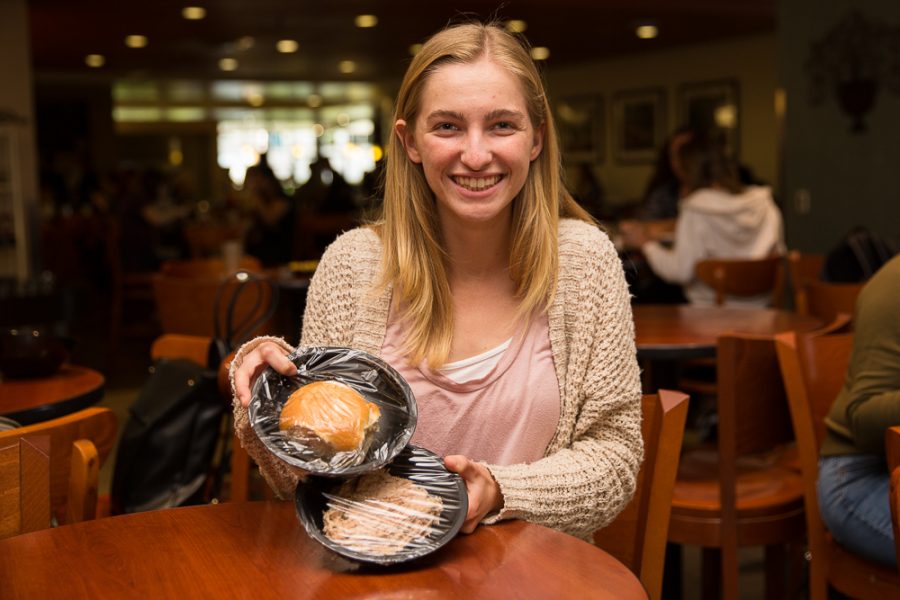Allergic to structure
Students with food allergies feel immense pressure to fulfill the requirements of a special diet.
Tomber Su/THE CHIMES
March 23, 2016
Eating with a food allergy in a university cafeteria poses a greater challenge than many realize; the difficult process of being careful with consumption discourages even the most devoted students from time to time.
The Allergy Program
Students are introduced to the allergy program upon enrollment, with the process involving a doctor’s note and approval from the university. While those in need of a special eating plan unanimously praise Biola and Bon Appetit for the quality of their meals, the pressure on student to fill out meals every week can be overwhelming.
Students are given access to a Google calendar link upon acceptance to the program, in which they must fill in every meal for the upcoming week on the prior Thursday. Depending on the student’s particular allergy, the kitchen accommodates to provide adequate meals.
Blessing and Pressure
Hannah Clark, freshman sociology major, has gluten-free and lactose restrictions. Clark said the way in which the Bon Appetit cafe makes her meals each week is a blessing as well as an added pressure to the strains of being in school.
“So you fill out all your meals for the week, the Thursday before the week, so you just say, ‘I’m going to eat at this time after this class, and this is what I want,’” Clark said. “And they’ll have it ready for you by the time you come and you eat it in the caf. It’s sort of like the best kept secret of the caf.”
Unnecessary Stress
Bianca Newby, sophomore intercultural studies major, has felt the pressure of the special diets program more than the benefits. The process of planning and fulfilling every meal with a recipe by the Thursday deadline can put unnecessary stress on an already stressful week.
“[If you don’t submit it on time] you just don’t eat. They just don’t [have food for you], you have to figure it out what to eat,” Newby said. “A lot of the time students will just go to Heritage and find something, but especially with me, I have a lot of allergies.”
Without Cross-Contamination
Stephen Rall, general manager of Bon Appetit, explained that the cafeteria is full of cross-contamination. The special diet program exists primarily to service those who cannot afford the possibility of consuming specific ingredients. Rall revealed that, while nearly 60 students were signed up for the program, only about 18 received meals every week.
“The people that are in the special diet program have more than one allergen symptom that requires them to be on a special diet without cross-contamination,” Rall said. “Kids that are on the special diet are on a doctor’s prescription, and by requirement we have to meet their needs as far as food is concerned because they’re on meal plan.”
While Bon Appetit food services does stress the top eight allergens on all label stations, it is understood that a severe allergic reaction is cared for more seriously. Just recently, the Bon Appetit staff began labeling bananas along with other allergens, due to mild reactions last year.
Cared for
Important to note, large and geographically exotic meal requests can be denied, and students are encouraged by Bon Appetit to take the kitchen’s limits into account. While the stress of planning every meal for the week can be overwhelming, students with special diet needs are cared for and provided with every opportunity they need, regardless of how many allergies the student may have.







